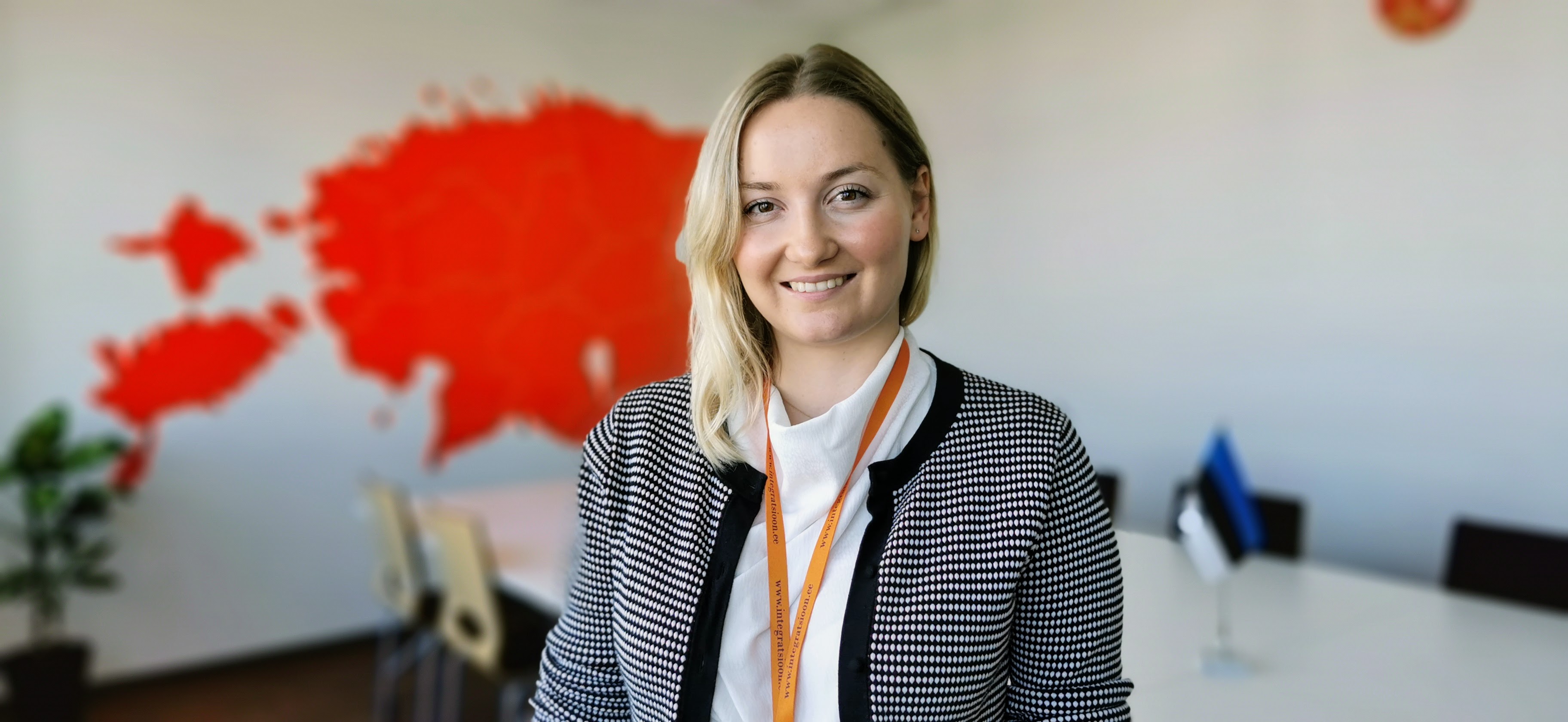The Ministry of Culture handed over the organisation and development of the national welcoming programme Settle in Estonia to the Integration Foundation. Britta Saks, Head of the respective field, explained the innovations that have taken place, the work in progress and the plans for the near future.
What other tasks are entrusted to the Integration Foundation? The Integration Foundation carries out activities related to integration, including adaptation, with the aim of supporting the development of a cohesive society in Estonia. This spring, our tasks also included the organisation and development of the national welcoming programme Settle in Estonia and related communication.
What is a welcoming programme? Who is it for? The welcoming programme Settle in Estonia helps foreigners that have arrived in Estonia to settle in more smoothly. It consists of free courses which, as a whole, provide an overview of life in Estonia, support in everyday matters and teach Estonian. At the same time, newcomers can build up contacts to help them cope with the changes.
Foreigners who have been living in Estonia for less than five years can take part in the welcoming programme. In particular, foreigners who have come to Estonia on the basis of conventional migration (e.g. for study, work, family reunification) and who have a temporary residence permit or right of residence will take part in the courses offered. They can take part in the welcoming programme for up to five years from the moment they arrive in Estonia and it is voluntary for them. The courses consist of six thematic modules (basic module, family module, work module, study module, science module, entrepreneurship module) and Estonian language courses at A1 and A2 level. It is this part of the integration programme that is currently fully managed by the Integration Foundation.
Participation in the welcoming programme is mandatory for beneficiaries of international protection and temporary protection. In the courses offered, they will get an overview of the Estonian state, society, and culture, and learn Estonian. The course work load varies somewhat depending on the status of the individual.
Why was there a change in the organisation of the programme? How are the roles now distributed? The programme was originally organised by the Ministry of the Internal Affairs and in recent years it has been run by the Ministry of Culture. As this is a programme consisting of courses, it was appropriate to move the practical delivery of the service from the policy-making to the implementation level. Therefore, the Ministry of Culture decided to entrust the implementation of the programme to us – the Integration Foundation. Every day we provide services and organise activities in the field of integration. Adaptation is the first stage of the integration process, so offering a welcoming programme fits very well within our remit.
The activities of the welcoming programme will be implemented with the support of the European Social Fund. Policy development in the field of integration will continue to be the task of the Ministry of Culture, as well as the development of the information platform Settle in Estonia and the organisation of adaptation courses for beneficiaries of temporary protection.
What does all this mean for the people for whom the services are intended? With what questions and how can they contact us? For the people targeted by the welcoming programme, not much will change. Information on the courses of the welcoming programme is still available at www.settleinestonia.ee, where you can also register for courses. We will gradually add information on the website of the Integration Foundation. If you have any questions, we encourage you to contact us by writing to info@settleinestonia.ee.
How have we organised the work? We provide services to the target group primarily through partners who are experts in their field and have long experience in providing these services.
What is our target for services and people? Our principle is to put the person at the centre of the services we provide. We want to provide high quality services and information based on people’s needs to support a smooth transition when settling in Estonia. So, feedback from service users is very welcome!
Are there any adaptations expected in the near future and what are they? In the near future, we would like to update the information on the website of the Integration Foundation so that potential participants in the welcoming programme are aware of the services available to them. We will also work with our partners who come into contact with potential participants in the programme to ensure that the exchange of information on adaptation is as systematic and thought-out as possible.
Next year, there is a plan to start offering B1 level language courses for people arriving in Estonia on the basis of conventional migration. Video courses will also be made available, allowing participants in the welcoming programme to organise their learning in a more flexible way and thus complete the course in a more convenient way.
If you have any questions about services or cooperation, who should you contact? Questions and suggestions related to the welcoming programme should be directed to the Head of Adaptation: Britta Saks – email britta.saks@integratsioon.ee.

Photo: the Head of Adaptation Britta Saks
